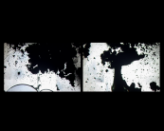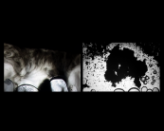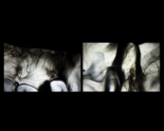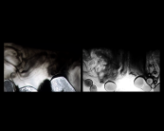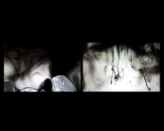Stills from moving image emulsional 2006 - Tracy Cornish

What would constitute a study of Photography in Real-Time?
A contemporary account of photography would offer insight into photography's contemporary condition. It would be inclusive of forms of photography that have been marginalized by conventional critiques and histories. It would accommodate the rapid technological changes and adapt to ideological and historical influences. It would also acknowledge unconventional approaches, those that don't fit within critiques based on indexicality. It would be open to photography's evolution within social, visual and information cultures. In short, it would engage with the diversity and complexity of photography. In order to pursue such an inquiry, it is necessary to move away from conventional critiques of photography, which as has been shown, limit their analysis to the photograph and its subject matter. Restricting analysis to the photograph, at best distorts and at worst ignores, the dynamic sets of relationships, connections and interactions that constitute photography.
This thesis presents photography as a complex system of ideas, technologies, connections and processes. It is an approach to photography which resonates with emerging research in other fields including the life and social sciences. Throughout the exegesis, concepts from the "sciences of complexity" will be introduced and employed to provide new insights into photography. Instead of focussing on mathematical equations and the quantitative data that accompanies a significant proportion of research into complex systems, this thesis presents Complexity as a way of thinking which fosters holism and connectedness.
The purpose of presenting photography as a complex system in the context of this research project, is to offer a more appropriate account of the artifacts of this thesis, than can be achieved by conventional critiques. Discretely, the artifacts critique particular aspects of photography's history, contemporary context and future possibilities. As a whole, the works speak of photography's transition from object to pure information. The artifacts are typically abstract in nature, due primarily to the processes involved in generation. Many of the artifacts are derived from unconventional approaches to photographic processes - including cameraless techniques such as cyanotype and electro-photography. Other artifacts are the result of employing a wide range of software applications. The artifacts break with conventional understandings of photography and offer new modes for making and thinking about photography and its future.
The following interconnecting essays introduce photography as a complex system; and provide a context with which to engage with the artifacts. The essays progressively weave concepts of complexity into discussions of photography related to this research project. Introducing Complexity and Networks > Clusters > Links > Nodes present some of the fundamental concepts and terms of Complexity and network science. They are useful concepts not only for understanding this research project but also for understanding the complex systems and networks that from part of our daily existence.
Photography and Complexity begins by identifying the usefulness of complexity outside of the sciences; and then introduces four photographic case studies that link Complexity thinking with photography. The Photographic Universe presents Vilem Flusser's thesis from Towards a Philosophy of Photography in terms of complex systems. Although he does not refer directly to complexity, his insights are drawn from a deep understanding of systems. Flusser set out to use photography as a means for comprehending transitions into post-industrial society in general. His analysis of photography becomes significant not just as a way of understanding the photographic universe, but also as a means for understanding our future. An Ecology of Post-Photography overviews contemporary post-photographic discourse and goes on to present David Tomas' view of post-photography as an effective counter-practice in the visual arts and beyond. Tomas employs cybernetics (a precursor to the more recent complexity sciences) to demonstrate that an ecological approach to photographic practice shifts the focus from product to process and in turn challenges conventional photographic practices/critiques/history. The Complex Processes of Abstraction explores photographic abstraction as inclusive systems of practices and processes that focus on connections rather than medium specificity. In this way, photography's translations into digital media establish new conversations across media; and new kinds of photography. Photographic abstraction resonates with our contemporary experiences in which information is becoming increasingly more abstract. The Emergence of Flickr explores the online photo management website Flickr in which users are linked via their engagement with photography. Understanding how the social network that has evolved is key to understanding Flickr's popularity and significance. It is explored in relation to two key aspects of Complexity - self-organization and emergence. Flickr points to where photography may be heading, and offers an opportunity to understand one of photography's possible futures.
The final essay, Intertwingularity draws on the concepts and insights from the previous essays to provide a context for the artifacts of this thesis. Complexity offers a basis for the generation of the artifacts as well as their critique. The artifacts, including this wiki website embody principles of complexity - they are the result of interactions; they are interconnected; and they form part of a whole.

Go to next essay Introducing Complexity | Go to The Research Project |Go to StudioResearch | Go to TheArchive | Go to ArtistArchive | Go to LiteratureArchive | Go to AuthorArchive | Go to Glossary of Terms | Go to photo:fugue | Go to HomePage

